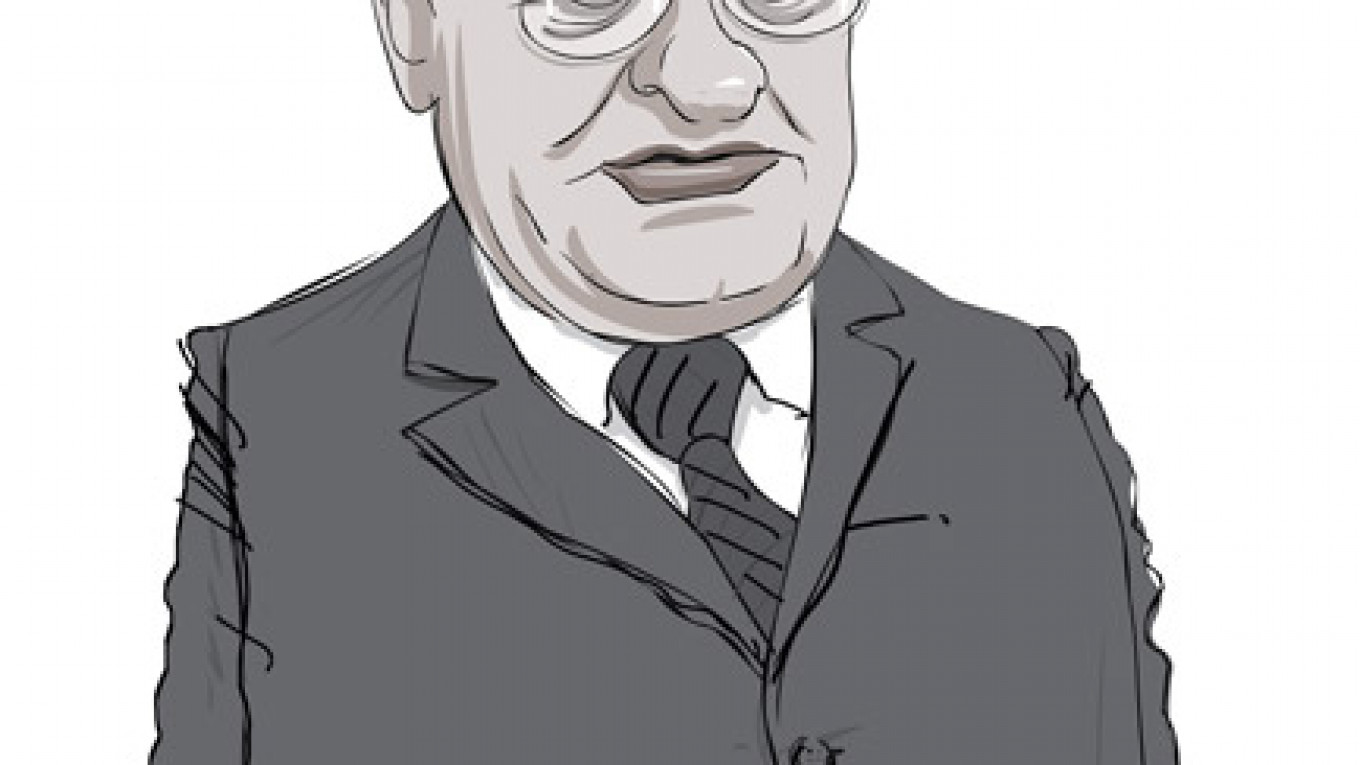With Ukrainian Minister Arseniy Yatsenyuk calling for legislation that would allow Ukraine to join NATO, Ukrainian President Petro Poroshenko has already announced his desire to secure a "special status" for Ukraine vis-a-vis NATO. But neither NATO membership nor any other privileged association with the alliance should be an option for Ukraine.
To understand why this is the correct policy, Western leaders should start by reading Russian President Vladimir Putin's March 18 speech announcing the annexation of Crimea. Arguing that Russia was forced to annex Crimea to forestall the possibility of Ukraine joining NATO, Putin asserted that the West "had lied to us many times. This happened with NATO's expansion to the East. … NATO remains a military alliance. I do not want to be welcomed in Sevastopol by NATO sailors."
While German Chancellor Angela Merkel has described Putin as being "in another world," Putin's worldview represents the overwhelming consensus in Russia. In a 2008 interview in the Daily Telegraph, even reformer Mikhail Gorbachev bitterly proclaimed that the "U.S. had broken a promise that NATO wouldn't move beyond the boundaries of Germany after the Cold War, but now half of Central and Eastern Europe are members, so what happened to their promises?"
What does Putin mean when he asserts that NATO expansion broke a promise to Russia? With Ukraine's delicate cease-fire hanging in the balance, it is imperative that Western leaders understand the historical context that has driven Moscow's decision-making during the crisis.
In a number of meetings in Moscow in February 1990, U.S., Soviet and West German leaders established the terms for German unification and the future of NATO. In conversations with Mikhail Gorbachev in Moscow on Feb. 9, U.S. Secretary of State James Baker told the Soviet leader that if Germany joined NATO, "there would be no extension of NATO's jurisdiction one inch to the East."
Gorbachev, according to his memoirs, replied that any expansion of the "zone of NATO" was not acceptable to the Soviets, a statement to which Gorbachev asserts that Baker assented and stated "we agree with that." That same day, German Foreign Minister Hans-Dietrich Genscher told Soviet Foreign Minister Eduard Shevardnadze that "one thing is certain: NATO will not expand to the East."
Armed with what he believed were firm Western commitments not to expand NATO, Gorbachev publicly gave his assent in principle to German reunification. Unfortunately for Gorbachev's successors, however, the former Soviet leader ended up settling for what was essentially a vague verbal understanding about NATO expansion with his Western counterparts.
But while nothing legally binding came out of Gorbachev's negotiations with Western leaders, Jack Matlock, U.S. ambassador to the Soviet Union from 1987 to 1991, has explained that while Eastern Europe was "not specifically mentioned, one could argue that a commitment was implicit in the assurances given regarding East Germany."
Nevertheless, despite Russia's belief that it had received a commitment from the West not to expand NATO, the alliance — over furious objections from Moscow — added the Czech Republic, Hungary and Poland into its fold in 1999. NATO then admitted Bulgaria, Estonia, Latvia, Lithuania, Romania, Slovakia and Slovenia to the alliance in 2004 — putting NATO on Russia's doorstep — and once again the Russians were incensed.
It didn't help that hours before the ceremony admitting the seven new members, four NATO F-16s were deployed to Lithuania while a reconnaissance aircraft flew 75 miles from the Russian border. At the time, though, Russia was too weak to prevent NATO's further expansion and was reduced to threatening to review its nuclear and security policies vis-a-vis NATO. With the admission of Croatia and Albania to NATO in 2009, 12 new countries in Eastern Europe had joined NATO since the breakup of the former Soviet Union.
Although events dating back two decades may seem like ancient history to Americans, to Russia — a country that has suffered numerous invasions from the West — the perceived betrayal regarding NATO expansion is a lesson that the West cannot be trusted.
"I can't read Putin's mind," Matlock said, "but my guess is that the possibility of NATO membership for Ukraine, for Putin, was something equivalent to Soviet missiles on Cuba for Kennedy."
In this context, Putin's actions should be easy for any Western strategist to understand. Although some have argued that Putin's primary motivation for preventing Kiev's reorientation to the West is the fear that Ukraine's democracy will lead to a "color revolution" in Russia, this understates the case.
For cultural, historical, economic and military reasons, Ukraine's status will always be a fundamental concern for Moscow. Russia looks at Ukraine in the same way that China looks at Taiwan, and no Russian leader — whether an authoritarian nationalist like Putin or a Western-style liberal — could afford to stand by and do nothing while watching the West bring Ukraine into its orbit.
Once this is understood, realpolitik dictates that the only viable solution for Ukraine's long-term security is neutrality. Unless the West is prepared to risk a conflict that could escalate to a nuclear exchange, Ukraine's Western patrons should push Kiev to enshrine a formal commitment to neutrality in a new Ukrainian constitution.
While the West and its clients in Kiev might object that Moscow should not be given a veto over Ukraine's security choices, Russia's geo-political status vis-a-vis Ukraine effectively does provide it such a veto, and there is no use in pretending it does not.
Neutrality worked quite well for both Finland and Austria during the Cold War, and there is no reason not to consider something similar for Ukraine. Doing so would send a powerful signal to Moscow that the West respects Russia's security interests, and that 2014 is not 1990 redux. The Russian wounds from 1990 may continue to impact the relationship between Moscow and the West, but events from that fateful year do offer EU and U.S. policymakers clear guidance for helping resolve the current crisis.
Josh Cohen is a former USAID project officer involved in managing economic reform projects in the former Soviet Union. He contributes to a number of foreign policy-focused media outlets and tweets at @jkc_in_dc
A Message from The Moscow Times:
Dear readers,
We are facing unprecedented challenges. Russia's Prosecutor General's Office has designated The Moscow Times as an "undesirable" organization, criminalizing our work and putting our staff at risk of prosecution. This follows our earlier unjust labeling as a "foreign agent."
These actions are direct attempts to silence independent journalism in Russia. The authorities claim our work "discredits the decisions of the Russian leadership." We see things differently: we strive to provide accurate, unbiased reporting on Russia.
We, the journalists of The Moscow Times, refuse to be silenced. But to continue our work, we need your help.
Your support, no matter how small, makes a world of difference. If you can, please support us monthly starting from just $2. It's quick to set up, and every contribution makes a significant impact.
By supporting The Moscow Times, you're defending open, independent journalism in the face of repression. Thank you for standing with us.
Remind me later.







